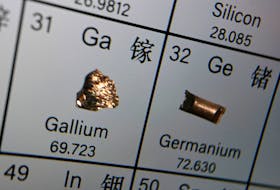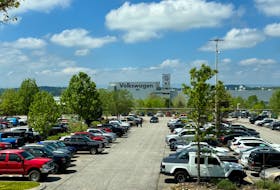
Cellufuel will be using a portion of the former Bowater Mersey plant for its commercial demonstration centre. The company was the first tenant announced by the province after they took over the site, and is hoping to start producing synthetic diesel this fall.
Cellufuel was born in the fall of 2012. In December of that year was the first organization to announce it would be a new tenant of the Innovcorp Demonstration Centre, which would be setting up in the former Bowater Mersey property.
The company was founded loosely about two and a half years ago by a group of four individuals who all worked in the forestry industry. They recognized the industry was in a state of decline, however at the same time felt there was still opportunities to be had.
"We asked what could we do that others haven't been able to do," says Hooper.
They wanted to find something that was new and innovative, but also smaller scale than some of the major industries such as pulp and paper. On the market side of things, a key factor was finding an industry with growth potential.
What they found was a piece of technology that takes biomass and turns it into synthetic diesel.
The product isn't called bio-diesel, since that has the specific definition as being a fuel based on plant and animal oils. Their product is a Renewable synthetic diesel, which can still be used in anything diesel is used for.
In Canada over half of diesel consumed goes into trucking industry, another 15 per cent in light duty vehicles, and the rest goes into agriculture, marine uses and heating.
Cellufuel's product would be blended with traditional crude oil based diesel when it goes to market.
"It has, in our minds, a very high potential for commercial applications," says Hooper.
The original timeline saw Cellufuel moving in by February of this year, however Hooper says the provincial election in the fall and change of government leadership delayed things. He added the new government seems just as committed to the Innovcorp Demonstration Centre, and there have been no major problems outside of the delay.
Though timelines can still change, tentatively the company is looking to move equipment in sometime in the summer with operations starting in the fall.
The Brooklyn operation will be a commercial demonstration site, designed to produce about 1.5 million litres per year. The site will employ five to seven people while in operation.
They know the technology works that will turn wood into diesel, however the site will give them valuable data on kinks they may need to work out and how well it will scale into a full operation.
"That data will either be strong enough to move forward with the next steps, a full commercial plant, or it will be indicative of things we need to improve," says Hooper.
He adds there is always the chance that it may not be feasible at all, but with the background research they have already done they believe it is very slim.








